
Helicobacter pylori overview
Helicobacter pylori infection is the most common cause of stomach and duodenal ulcers worldwide with almost 90% of cases showing the infection. The bacterium causes an inflammation of the mucus membrane lining the stomach. The thinning of the membrane may subsequently give rise to ulcers. The ulcers may bleed and the patient may develop anemia. The infection is acquired through person to person contact and by ingesting food and water which has been contaminated with the bacteria. The infection is common in places where many people live in close quarters in unhygienic conditions. Although the infection responds well to treatment, in 20% of cases, it may become recurrent.
- Important notification about information and brand names used in this slideshow!
- Photo courtesy of AJ Cann by Flickr : www.flickr.com/photos/ajc1/6946417103/
- www.mayoclinic.com/health/h-pylori/DS00958
- http://www.medicinenet.com/helicobacter_pylori/article.htm
- http://www.uptodate.com/contents/helicobacter-pylori-infection-and-treatment-beyond-the-basics
- http://www.webmd.com/digestive-disorders/h-pylori-helicobacter-pylori
- http://en.wikipedia.org/wiki/Helicobacter_pylori
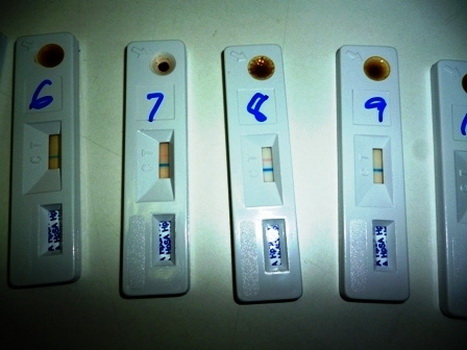
Diagnosing helicobacter pylori
There are several methods by which H. pylori infection can be diagnosed. These include: • Urea breath test: The patient is made to drink a solution whose components can be broken down by H. pylori. These products obtained up on breakdown are detected on analyzing the breath. • Blood tests: These tests are done to detect the presence of antibodies to H. pylori bacteria. • Endoscopic biopsy: Specimen obtained after biopsy is placed on a slide containing urea. Breakdown of urea by H. pylori bacteria leads to a color change on the slide. • Stool examination: Stool is examined to look for the presence of H. pylori.

Symptoms of H. pylori infection
Around 85% of the patients suffering from H. pylori infection do not have any symptoms. Some patients present with symptoms of acute gastritis, i.e., pain in upper abdomen, nausea and vomiting. Patients usually present with symptoms when they develop stomach or duodenal ulcers. In such cases, the presenting symptoms include: • Pain in abdomen • Fullness of abdomen • Loss of appetite • Nausea and vomiting • Feeling of fullness after eating little food • Anemia may lead to easy fatigability • Dark colored stools because of presence of blood • In certain patients, chronic gastritis may give rise to stomach cancer. In such instances, patients may suffer from weight loss, malaise, vomiting in blood and other features of cancers.

Causes of H. pylori infection
H. pylori infection is usually caused when a person consumes food or water that has been contaminated by fecal matter which contains the bacteria. It is also present in the saliva and vomitus, and spreads when a person comes in direct contact with them. The condition is commonly seen in places where people live in crowded conditions and the sanitation of the place is poor. The infection with H. pylori bacteria in the developing countries usually occurs during childhood, before the age of ten. However, in the US and other developed countries, H. pylori infection is normally seen in adulthood. 20% of people under the age of 40 and 50% of people over the age of 60 in America harbor H. pylori bacteria.
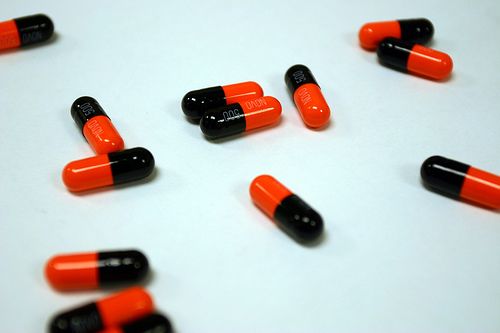
Medications for H. Pylori infection
Bringing H. pylori infection under control is not easy as the bacteria develop resistance to most of the commonly used antibiotics. The infection is treated using a multi-pronged approach. Some of the medicines used in the treatment of this condition are: • Proton pump inhibitors: They reduce the production of acid in the stomach. This gives time to the damaged tissues to heal. • Antibiotics: Physicians usually prescribe two antibiotics at a time to eradicate H. pylori. Taking two antibiotics together reduces the incidence of antibiotic resistance and improves the chances of success of the treatment. If the medicines are taken as prescribed, the infection is usually cured in 7-14 days. However, in 20% of cases, the infection may recur.

Who's at risk of developing H. pylori infection?
Infection with H. pylori bacteria depends a lot on the environmental conditions during one’s childhood. The following groups of people are considered to be at high risk of developing the infection: • People living in crowded conditions. • People who live in a place where there is no reliable source of hot water. The latter is important for maintaining personal hygiene as well as keeping the surroundings clean. • People living in developing countries where the population is more and living conditions are not very hygienic. • Living in close quarters with a person who is already infected with H. pylori infection, increases the risk of acquiring the infection. H. pylori infection is particularly common if a parent or a sibling harbors the bacteria.
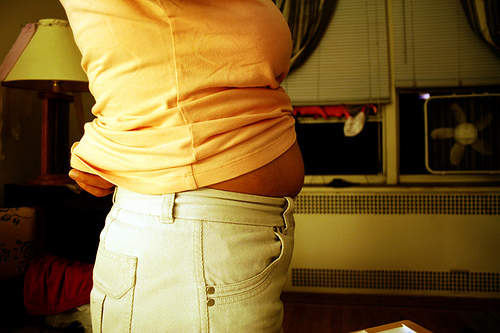
Possible complications of H. pylori infection
If the infection with H. pylori bacteria is severe, it can give rise to several complications. Some of them include: • Ulcers: H. pylori can damage the mucosal membrane leading to formation of ulcers. These ulcers may bleed leading to anemia and hypotension. • Gastritis: Inflammation of the mucosal lining can give rise to a cute gastritis. This may lead to heartburn, nausea and vomiting. • Stomach cancers: persistent gastritis may lead to the development of stomach cancers. • Extra gastric diseases: Research has shown some association between H. pylori infection and conditions like mucosa-associated lymphoid tissue lymphomas (MALTomas), gastro-esophageal reflux disease (GERD), skin diseases, rheumatologic conditions and diabetes.

Prevention of H. pylori infection
The most effective way of preventing H. pylori infection is to maintain healthy and clean living conditions. Avoid personal contact with a patient suffering from the infection so as to prevent coming in contact with his saliva or vomitus. Consume clean food and water. There are no clear cut guidelines to tell whether a symptomatic person should be examined for the presence of H. pylori infection and whether he should be put on medications. Research is being carried out to develop an effective vaccine against H. pylori. Trials are also going on to ascertain various systems which provide immune protection to individuals.
- Important notification about information and brand names used in this slideshow!
- Photo courtesy of Krishna Santhanam by Flickr : www.flickr.com/photos/armaggeusa/3176297283
- en.wikipedia.org/wiki/Helicobacter_pylori

Treatments for H. pylori infection
H. Pylori infection should be treated in patients who present with symptoms of gastritis or stomach/ duodenal ulcers. Treatment in such patients reduces the symptoms of heartburn and help in the healing of the ulcers. Complete treatment ensures that there are no recurrent ulcers. As the ulcers heal, the risk of developing stomach cancer due to chronic gastritis also subsides. One should remember that it is difficult to treat H. pylori infection completely as there is rapid development to the commonly used antibiotics. Therefore physicians usually prescribe two antibiotics simultaneously along with bismuth containing compounds or a proton pump inhibitor. The latter two have an inhibitory action on H. pylori bacteria.

Stomach ulcers
Helicobacter pylori can cause stomach ulcers by damaging the mucus membrane of the stomach. Because of damage to this protective lining, the strong hydrochloric acid present in the stomach can irritate the walls resulting in the formation of an ulcer. However, it is important to remember that a majority of patients with H. pylori infection do not go on to develop stomach ulcer. Although it is difficult to predict which patients will develop ulcers, it depends a lot on the patient’s genetic predisposition and the strain of the bacteria infecting the person. Stomach ulcers can bleed and in extreme cases, the patient may suffer from anemia or even hypotension.


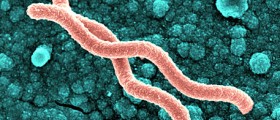

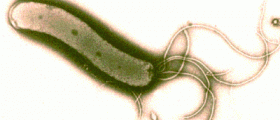
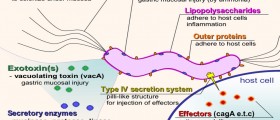







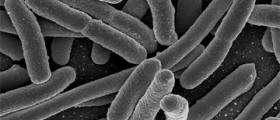
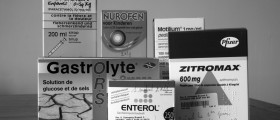
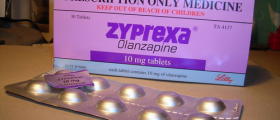






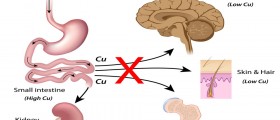
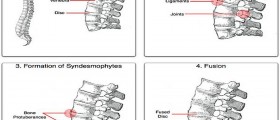



Your thoughts on this
Loading...